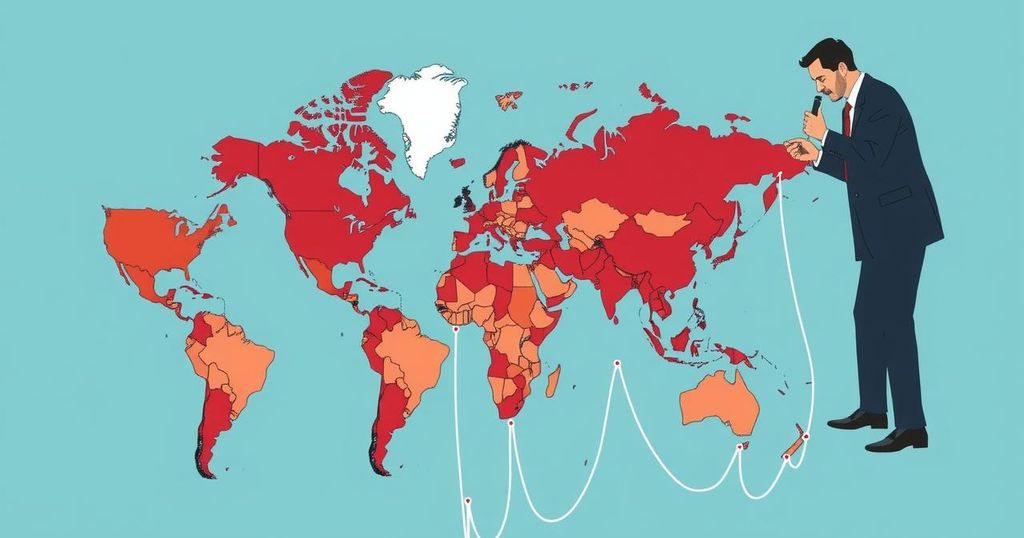In 2024, voters in 70 countries exhibited widespread dissatisfaction with incumbents, rejecting established governments in favor of new political movements. Key nations such as India and the United States faced significant shifts towards radical political change amid concerns over economic downturns and social issues. Political analysts noted a troubling trend of increasing support for far-right parties while emphasizing a persistent discontent in democratic satisfaction, suggesting a challenging future for global democracy.
In the tumultuous climate of 2024, voters across 70 countries signaled their discontent with incumbents, reflecting a wave of anti-establishment sentiment driven by economic challenges and social unrest. Major players like India, the United States, and various European nations witnessed significant electoral upheavals, with many governments ousted or forced into coalitions. Political experts, including Cas Mudde from the University of Georgia, noted this year as one of significant gains for far-right factions and discontent towards traditional democratic structures. The underlying causes were traced to factors such as enduring “electoral long COVID,” characterized by lingering pandemic effects and rising inflation due to global conflicts, particularly the war in Ukraine.
The electoral trends observed in 2024 arose amidst a backdrop of widespread dissatisfaction with established political institutions. Major economic disruptions, exacerbated by the COVID-19 pandemic and geopolitical conflicts, have led to a climate where voters are increasingly willing to reject traditional parties and embrace new, often extreme political options. This year’s elections have not only highlighted individual national issues but also reflected broader global patterns of instability and the challenges facing democracies worldwide.
The 2024 electoral landscape reveals a profound discontent with traditional governance, as evidenced by electoral defeats for long-standing parties and the rise of far-right populism. The ongoing challenges presented by economic instability and health crises appear to have prompted voters to seek alternatives outside the mainstream political discourse. As countries grapple with these shifts, the future of democracies will likely hinge on leaders’ ability to address these pressing expectations and frustrations of their constituents.
Original Source: www.news4jax.com






